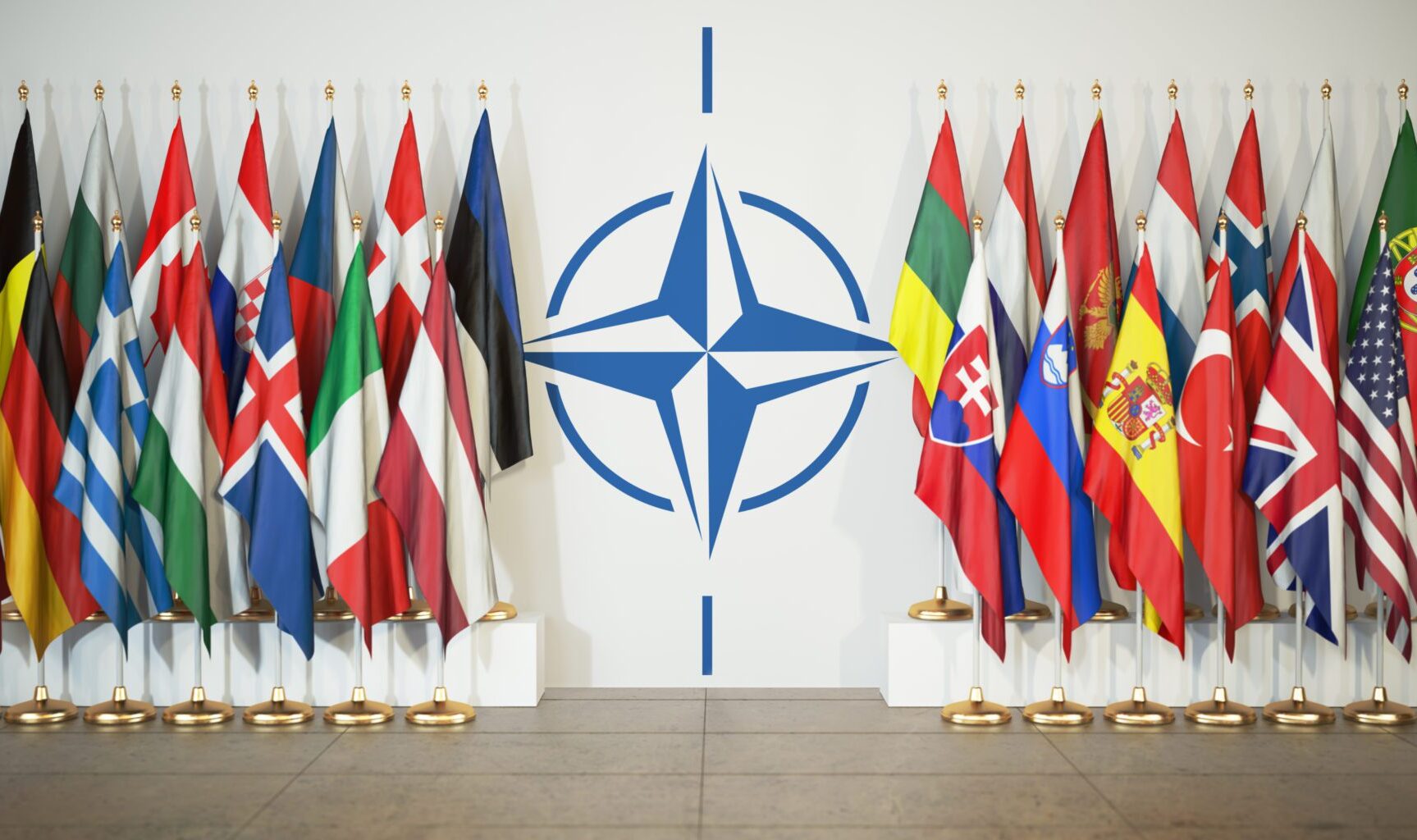Trump Should Turn NATO Over to Europe
Don’t insult the Europeans. Work with them to shift the military burden.

There have been 13 presidents since the end of World War II. Donald Trump has done more than the other dozen combined to push Europe to take its own defense seriously. His approach is easy to criticize and there is still much for the continent to do. However, if Joe Biden still occupied the Oval Office, the Europeans would be savoring champagne while celebrating their good fortune. They would continue to enjoy their cheap ride at American expense.
Unsurprisingly, Trump’s victory triggered wailing, whinging, and whining across Europe. America no longer stands for liberal values. It no longer leads the free world. Washington can no longer be relied upon. It should no longer be considered a friend. Indeed, the U.S. has become a foe, even an enemy.
All because Trump made clear that Americans would no longer reflexively subsidize and even die for Europe’s bountiful welfare state. In fact, despite the hysteria generated in Europe, the president has only just begun the disengagement process. Administration officials still profess their commitment to NATO. Although Secretary of Defense Pete Hegseth said the Europeans should not assume American forces would garrison the continent “forever,” Trump has denied any plan to withdraw all U.S. troops from Europe.
However, this should be the administration’s ultimate objective. Not just to share the burden of the continent’s defense, but to shift it to where it belongs: to Europe. Even some Europeans recognize that the current situation, eight decades after World War II’s end, is ridiculous. Polish Premier Donald Tusk noted that today “500 million Europeans ask 300 million Americans to protect them from 140 million Russians.”
Alas, making that point to most European officials is akin to spewing blasphemous obscenities at Catholics gathered in St. Peter’s Square on Christmas Day. At least Europeans’ reaction is understandable. They’ve had a good deal and hate to lose it. Harder to credit is the attitude on Capitol Hill.
So horrified were legislators after Trump’s first term that they passed a requirement, cosponsored by then-Senator, now Secretary of State, Marco Rubio, that the president get their approval to leave the alliance. This from members who routinely encourage presidential warmaking in violation of the Constitution. In their view, the chief executive can arbitrarily launch military campaigns in which thousands of Americans and hundreds of thousands of foreigners die but not end an alliance which could take the U.S. into war against a nuclear-armed great power over issues primarily of interest to Europe.
Today Republican leaders are outraged at press reports that the administration is considering turning the job of NATO’s Supreme Allied Commander over to a European. Complained former Senate Republican leader Mitch McConnell, who has backed every misbegotten war during his tenure: “Weakening American leadership won’t strengthen NATO or U.S. interests. If we’re serious about encouraging more capable European allies, retreating from our position as the leader of the trans-Atlantic alliance would be an odd way to show it.” Nor is he alone in this criticism.
Abandoning this dominant role might be dubious if the administration planned to continue providing NATO with the bulk of manpower, materiel, funding, and combat effectiveness. However, the shift should be used to aid the Europeans in taking over these responsibilities. Armida van Rij, head of the Europe Program at Chatham House, admitted that this step “may allow the European Nato allies to get organized and enable Nato to operate as a functional alliance.”
Still, such a transfer will not be easy. An unnamed European foreign minister told the Financial Times: “We cannot run any form of complex military operation without [the U.S.], or sustain even simple tasks.” For decades NATO meant North America and the Others, with Canada as the kind of U.S. appendage that Trump imagines today.
The Europeans should spend more. Europe devotes about $340 billion annually to the military and supports some two million personnel while generating surprisingly little combat power. European outlays are up, but collective expenditures remain about 1.8 percent of GDP, well below NATO’s new target of 3.5 percent. The Europeans also must spend more in the right areas, remedying deficiencies likely to result from America’s departure. The continent needs more people in uniform, well-trained, professional soldiers filling combat brigades. Europe also requires satellites, drones, air defense, missiles, and more. The Europeans need to generate a continental military industrial base capable of equipping much of their own armed forces. Working better together would yield better results, but they still need experience in managing a multinational alliance.
This complicated transition will require Europeans to reach greater consensus about the threats facing Europe. The only plausible danger comes from Russia, and NATO countries to the east, starting with the Baltic states, fear invasion. Moving westward, anxiety over a potential Russian attack drops precipitously. Despite the fevered rhetoric of some allied officials, these governments—including Britain, France, and Germany—have not behaved with the urgency and seriousness one would expect if they faced a genuine threat. By the time one reaches the Atlantic there is little interest in defense or NATO. Only last week did Spanish Prime Minister Pedro Sanchez reluctantly pledge to meet the alliance’s two percent of GDP standard, and some of his coalition partners have opposed any increase in military outlays. In fact, the claim that Vladimir Putin plans a race to the Atlantic looks fantastic, given Moscow’s lack of previous interest in European conquest and extreme difficulty in defeating only Ukraine.
It is in Washington’s interest to facilitate a European takeover of NATO. For decades, members of the infamous “Blob”—the interests and elites dominating U.S. foreign policy—have wanted America’s allies to do more, but only under Washington’s direction. The Blob discouraged independent continental thinking and action. U.S. policymakers should finally encourage Europe to develop its own capabilities and prepare to use them if necessary.
Europeans don’t need American permission to do so. They have an inherent right to self-defense. But a friendly push enhanced by helpful advice and practical experience could accelerate the end of European defense dependence, a process that some predict could otherwise take a decade.
To begin, the administration should express its commitment to fully transfer defense duties to Europe. The end result would be to leave Europeans responsible for raising and managing sufficient military forces to deter any threat, including from Russia. Washington must demonstrate that it is serious about leaving. The U.S. should immediately withdraw the 20,000 extra troops that the Biden administration added to Europe after Russia’s invasion of Ukraine. Next, Trump should begin drawing down, gradually, the other 80,000 Americans stationed in Europe.
Washington also should initiate discussions over how best to manage the transition. That would require the Europeans to decide on their preferred outcome. Talks among European governments apparently are already underway. They could take over NATO, with the U.S. becoming an associate member or filling some other affiliate role. Another possibility, apparently with greater European popular support, would be to enhance the European Union’s role, perhaps even shifting continental military operations to the organization. Or, given the differences among members, the Europeans might divide based on military seriousness and competence—perhaps Britain, France, Germany, and Poland, plus the Baltics in one group, Italy, Portugal, Spain, and a few others in another organization, and the Balkan states forming its own regional association.
The U.S. should commit to provide weapons for European forces and support the creation of a more sophisticated and comprehensive continental defense industrial base. That would mean not obstructing European governments which turn to European firms for arms. The continent’s military deficiencies are many, but it could use money now spent on weapons from the U.S. at home to help fill the gap. In America, lost sales would be more than compensated for by Washington shrinking its oversize, globe-spanning military force.
Finally, the administration should promote amity rather than hostility, and a continuing, though updated, relationship. Although Vice President J.D. Vance’s sniping at Europe is not without merit, Europeans have died fighting in America’s wars. That sacrifice should be appreciated, even though it does not justify America’s promise to fight a nuclear war on Europe’s behalf. Ties between the U.S. and the old world are wide, deep, and enduring. And there will be good reasons to cooperate in the future, though hopefully not in any more needless wars of choice, such as Serbia, Afghanistan, and Libya. Both sides of the Atlantic would benefit from a more equal partnership, with military meddling a clear last resort.
Foreign policy, including security commitments, military alliances, and troop deployments, should be treated as matters of prudential judgment, not unchanging totems. They, and NATO, should vary with time and circumstance. The transatlantic alliance was created during the Cold War to constrain the Soviet Union. Even then, leading U.S. policymakers believed that America’s troop presence should be temporary.
That world long ago passed away and today could not be more different. There no longer is any justification for a U.S.-funded, -staffed, and -dominated NATO. After decades of American complaints, President Donald Trump has convinced even the Europeans that the transatlantic defense relationship must change. He should begin working with the Europeans to create a new continental security system funded, staffed, and dominated by Europe.
The post Trump Should Turn NATO Over to Europe appeared first on The American Conservative.

